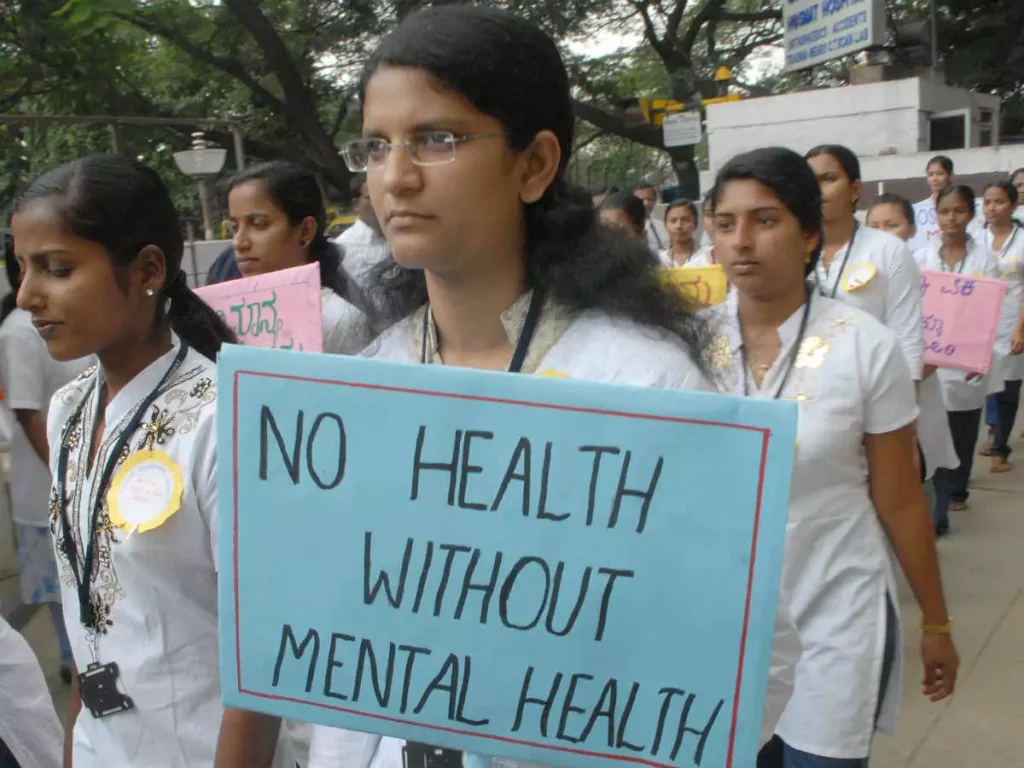Education is often viewed as the key to empowerment, but true learning extends beyond academics. Mental health plays a critical role in a student’s ability to succeed, yet it remains one of the most overlooked aspects of girls’ education. Social expectations, gender biases, and academic pressures can take a toll on their mental well-being, affecting performance, confidence, and long-term aspirations. By prioritizing mental health awareness in education, we can create an environment where girls not only learn but also thrive.

Why Mental Health Awareness Matters in Girls’ Education
Girls often face unique mental health challenges due to societal pressures, cultural expectations, and gender-based discrimination. A lack of awareness about mental health can lead to stress, anxiety, depression, and even school dropouts. Recognizing and addressing these issues is crucial in ensuring that girls receive a holistic education.
Key Mental Health Challenges Faced by Girls in Education
1. Academic Pressure and Performance Anxiety
Girls are often expected to excel academically while also fulfilling traditional roles at home. This can lead to excessive stress and fear of failure, impacting their self-esteem and academic performance.
2. Gender Discrimination and Stereotypes
Many girls still face discouragement from pursuing higher education or careers in STEM fields due to outdated gender norms. This can create self-doubt and limit their aspirations.
3. Bullying and Peer Pressure
Social acceptance plays a significant role in a girl’s school experience. Body image issues, cyberbullying, and peer pressure can contribute to anxiety and depression, making school a challenging space.
4. Menstrual Health and Stigma
The stigma around menstruation often leads to absenteeism in schools. Many girls suffer in silence due to a lack of proper education and support, affecting their mental well-being and academic progress.
5. Harassment and Safety Concerns
The fear of harassment, both in school and while commuting, creates an additional layer of stress for many girls. A lack of safe spaces can result in anxiety, affecting concentration and participation.
Impact of Poor Mental Health on Education
- Lower Attendance & Dropout Rates – Girls with untreated mental health issues are more likely to drop out or miss school frequently.
- Decline in Academic Performance – Anxiety and stress can lead to a lack of focus, memory issues, and poor grades.
- Reduced Confidence & Leadership Skills – A lack of mental health support prevents girls from taking on leadership roles or voicing their opinions.
Policies & Initiatives Supporting Mental Health in Girls’ Education
Governments and organizations worldwide have started recognizing the importance of mental health in education. Some key initiatives in India include:
1. Manodarpan (Ministry of Education, India)
A program under the National Education Policy (NEP) 2020, Manodarpan provides psychological support to students through helplines and counseling.
2. Samagra Shiksha Abhiyan (SSA)
This initiative integrates mental health awareness into school curriculums, ensuring girls receive emotional and psychological support alongside their education.
3. Khelo India for Mental Well-being
Encouraging physical activity and sports in schools to reduce stress and improve mental health among students, especially young girls.
4. NGOs and Private Initiatives
Organizations like Snehi, Sangath, and The MINDS Foundation offer counseling, workshops, and mental health programs specifically targeting young girls in schools.
Creating a Supportive Environment for Girls
To ensure girls receive a quality education with strong mental health support, schools and communities must:
- Integrate Mental Health Education – Schools should teach students about emotional well-being, coping mechanisms, and self-care.
- Provide Access to Counselors – Every school should have trained counselors available for students to seek help.
- Encourage Open Conversations – Breaking the stigma around mental health will allow girls to seek support without fear.
- Promote Safe and Inclusive Spaces – Schools should create a safe environment where girls feel secure and valued.
The Future of Mental Health in Girls’ Education
As awareness grows, mental health is becoming a priority in education policies. However, much more needs to be done. Schools must go beyond academics and nurture environments where girls feel emotionally supported. Parents, teachers, and policymakers must work together to ensure mental well-being is a core part of a girl’s education, allowing them to achieve their full potential without mental health barriers holding them back.
Conclusion
Education is not just about academic excellence; it is about nurturing strong, resilient, and confident individuals. By prioritizing mental health awareness in girls’ education, we are paving the way for a future where girls are not only educated but also emotionally empowered to face life’s challenges. Addressing mental health today will create a generation of young women who are not just learners but leaders.
